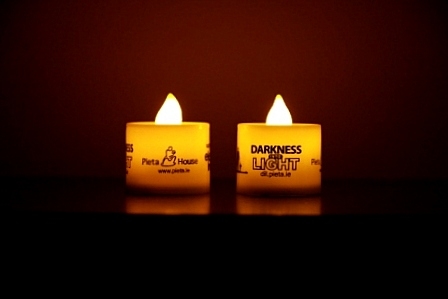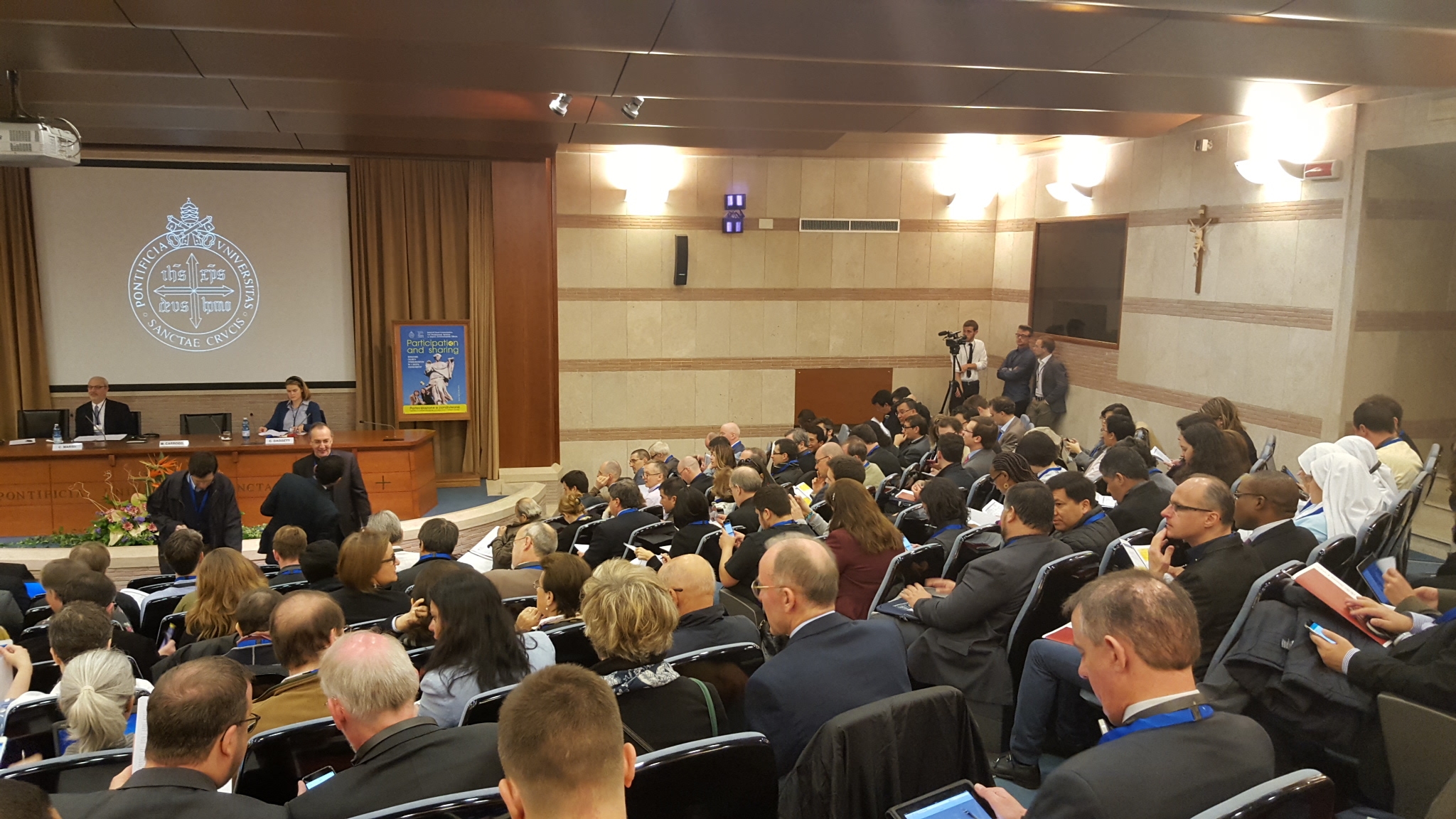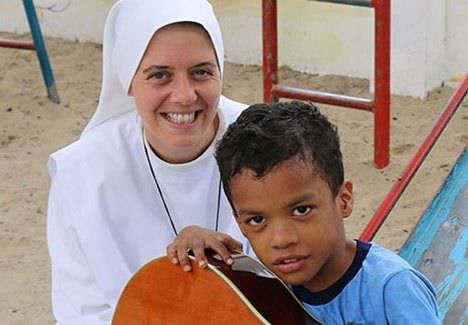You’re looking at a woman who was publicly silent for a decade. Obviously, that’s changed, but only recently.
It was several months ago that I gave my very first major public talk at the Forbes 30 Under 30 summit: 1,500 brilliant people, all under the age of 30. That meant that in 1998, the oldest among the group were only 14, and the youngest, just four. I joked with them that some might only have heard of me from rap songs. Yes, I’m in rap songs. Almost 40 rap songs.
But the night of my speech, a surprising thing happened. At the age of 41, I was hit on by a 27-year-old guy. I know, right? He was charming and I was flattered, and I declined. You know what his unsuccessful pickup line was? He could make me feel 22 again. I realized later that night, I’m probably the only person over 40 who does not want to be 22 again.
At the age of 22, I fell in love with my boss, and at the age of 24, I learned the devastating consequences.
Can I see a show of hands of anyone here who didn’t make a mistake or do something they regretted at 22? Yep. That’s what I thought. So like me, at 22, a few of you may have also taken wrong turns and fallen in love with the wrong person, maybe even your boss. Unlike me, though, your boss probably wasn’t the President of the United States of America. Of course, life is full of surprises.
Not a day goes by that I’m not reminded of my mistake, and I regret that mistake deeply.
In 1998, after having been swept up into an improbable romance, I was then swept up into the eye of a political, legal and media maelstrom like we had never seen before. Remember, just a few years earlier, news was consumed from just three places: reading a newspaper or magazine, listening to the radio, or watching television. That was it. But that wasn’t my fate.
Instead, this scandal was brought to you by the digital revolution. That meant we could access all the information we wanted, when we wanted it, anytime, anywhere, and when the story broke in January 1998, it broke online. It was the first time the traditional news was usurped by the Internet for a major news story, a click that reverberated around the world.
What that meant for me personally was that overnight I went from being a completely private figure to a publicly humiliated one worldwide. I was Patient Zero of losing a personal reputation on a global scale almost instantaneously.
This rush to judgment, enabled by technology, led to mobs of virtual stone-throwers. Granted, it was before social media, but people could still comment online, email stories, and, of course, email cruel jokes. News sources plastered photos of me all over to sell newspapers, banner ads online, and to keep people tuned to the TV.
Do you recall a particular image of me, say, wearing a beret? Now, I admit I made mistakes, especially wearing that beret. But the attention and judgment that I received, not the story, but that I personally received, was unprecedented. I was branded as a tramp, tart, slut, whore, bimbo, and, of course, that woman. I was seen by many but actually known by few. And I get it: it was easy to forget that that woman was dimensional, had a soul, and was once unbroken.
When this happened to me 17 years ago, there was no name for it. Now we call it cyberbullying and online harassment. Today, I want to share some of my experience with you, talk about how that experience has helped shape my cultural observations, and how I hope my past experience can lead to a change that results in less suffering for others.
In 1998, I lost my reputation and my dignity. I lost almost everything, and I almost lost my life.
Let me paint a picture for you. It is September of 1998. I’m sitting in a windowless office room inside the Office of the Independent Counsel underneath humming fluorescent lights. I’m listening to the sound of my voice, my voice on surreptitiously taped phone calls that a supposed friend had made the year before. I’m here because I’ve been legally required to personally authenticate all 20 hours of taped conversation.
For the past eight months, the mysterious content of these tapes has hung like the Sword of Damocles over my head. I mean, who can remember what they said a year ago? Scared and mortified, I listen, listen as I prattle on about the flotsam and jetsam of the day; listen as I confess my love for the president, and, of course, my heartbreak; listen to my sometimes catty, sometimes churlish, sometimes silly self being cruel, unforgiving, uncouth; listen, deeply, deeply ashamed, to the worst version of myself, a self I don’t even recognize.
A few days later, the Starr Report is released to Congress, and all of those tapes and transcripts, those stolen words, form a part of it. If people can read the transcripts it’s horrific enough, but a few weeks later, the audio tapes are aired on TV, and significant portions made available online. The public humiliation was excruciating. Life was almost unbearable.
This was not something that happened with regularity back then in 1998, and by this, I mean the stealing of people’s private words, actions, conversations or photos, and then making them public — public without consent, public without context, and public without compassion.
Fast forward 12 years to 2010, and now social media has been born. The landscape has sadly become much more populated with instances like mine, whether or not someone actually made a mistake, and now it’s for both public and private people. The consequences for some have become dire, very dire.
I was on the phone with my mom in September of 2010, and we were talking about the news of a young college freshman from Rutgers University named Tyler Clementi. Sweet, sensitive, creative Tyler was secretly webcammed by his roommate while being intimate with another man. When the online world learned to this incident, the ridicule and cyberbullying ignited. A few days later, Tyler jumped from the George Washington Bridge to his death. He was 18.
My mom was beside herself about what happened to Tyler and his family, and she was gutted with pain in a way that I just couldn’t quite understand, and then eventually I realized she was reliving 1998, reliving a time when she sat by my bed every night, reliving a time when she made me shower with the bathroom door open, and reliving a time when both of my parents feared that I would be humiliated to death, literally.
Today, too many parents haven’t had the chance to step in and rescue their loved ones. Too many have learned of their child’s suffering and humiliation after it was too late. Tyler’s tragic, senseless death was a turning point for me. It served to recontextualize my experiences, and I then began to look at the world of humiliation and bullying around me and see something different.
In 1998, we had no way of knowing where this brave new technology called the Internet would take us. Since then, it has connected people in unimaginable ways, joining lost siblings, saving lives, launching revolutions, but the darkness, cyberbullying, and slut-shaming that I experienced had mushroomed. Every day online, people, especially young people who are not developed mentally equipped to handle this, are so abused and humiliated that they can’t imagine living to the next day, and some, tragically, don’t, and there’s nothing virtual about that.
ChildLine, a UK nonprofit that’s focused on helping young people on various issues, released a staggering statistic late last year. From 2012 to 2013, there was an 87% increase in calls and emails related to cyberbullying. A meta-analysis done out of the Netherlands showed that for the first time, cyberbullying was leading to suicidal ideations more significantly than offline bullying. And you know what shocked me, although it shouldn’t have, was other research last year that determined humiliation was a more intensely felt emotion than either happiness or even anger.
Cruelty to others is nothing new, but online, technologically enhanced shaming is amplified, uncontained, and permanently accessible. The echo of embarrassment used to extend only as far as your family, village, school or community, but now it’s the online community too. Millions of people, often anonymously, can stab you with their words, and that’s a lot of pain, and there are no perimeters around how many people can publicly observe you and put you in a public stockade. There is a very personal price to public humiliation, and the growth of the Internet has jacked up that price.
For nearly two decades now, we have slowly been sowing the seeds of shame and public humiliation in our cultural soil, both on- and offline. Gossip websites, paparazzi, reality programming, politics, news outlets and sometimes hackers all traffic in shame. It’s led to desensitization and a permissive environment online which lends itself to trolling, invasion of privacy, and cyberbullying. This shift has created what Professor Nicolaus Mills calls a culture of humiliation.
Consider a few prominent examples just from the past six months alone. Snapchat, the service which is used mainly by younger generations and claims that its messages only have the lifespan of a few seconds. You can imagine the range of content that that gets. A third-party app which Snapchatters use to preserve the lifespan of the messages was hacked, and 100,000 personal conversations, photos, and videos were leaked online to now have a lifespan of forever. Jennifer Lawrence and several other actors had their iCloud accounts hacked, and private, intimate, nude photos were plastered across the Internet without their permission. One gossip website had over 5 million hits for this one story. And what about the Sony Pictures cyberhacking? The documents which received the most attention were private emails that had maximum public embarrassment value.
But in this culture of humiliation, there is another kind of price tag attached to public shaming. The price does not measure the cost to the victim, which Tyler and too many others, notably women, minorities, and members of the LGBTQ community have paid, but the price measures the profit of those who prey on them. This invasion of others is a raw material, efficiently and ruthlessly mined, packaged and sold at a profit.
A marketplace has emerged where public humiliation is a commodity and shame is an industry. How is the money made? Clicks. The more shame, the more clicks. The more clicks, the more advertising dollars. We’re in a dangerous cycle. The more we click on this kind of gossip, the more numb we get to the human lives behind it, and the more numb we get, the more we click. All the while, someone is making money off of the back of someone else’s suffering. With every click, we make a choice. The more we saturate our culture with public shaming, the more accepted it is, the more we will see behavior like cyberbullying, trolling, some forms of hacking, and online harassment. Why? Because they all have humiliation at their cores. This behavior is a symptom of the culture we’ve created. Just think about it.
Changing behavior begins with evolving beliefs. We’ve seen that to be true with racism, homophobia, and plenty of other biases, today and in the past. As we’ve changed beliefs about same-sex marriage, more people have been offered equal freedoms. When we began valuing sustainability, more people began to recycle. So as far as our culture of humiliation goes, what we need is a cultural revolution. Public shaming as a blood sport has to stop, and it’s time for an intervention on the Internet and in our culture.
The shift begins with something simple, but it’s not easy. We need to return to a long-held value of compassion — compassion and empathy. Online, we’ve got a compassion deficit, an empathy crisis.
Researcher Brené Brown said, and I quote, “Shame can’t survive empathy.” Shame cannot survive empathy. I’ve seen some very dark days in my life, and it was the compassion and empathy from my family, friends, professionals, and sometimes even strangers that saved me. Even empathy from one person can make a difference. The theory of minority influence, proposed by social psychologist Serge Moscovici, says that even in small numbers, when there’s consistency over time, change can happen. In the online world, we can foster minority influence by becoming upstanders. To become an upstander means instead of bystander apathy, we can post a positive comment for someone or report a bullying situation. Trust me, compassionate comments help abate the negativity. We can also counteract the culture by supporting organizations that deal with these kinds of issues, like the Tyler Clementi Foundation in the U.S., In the U.K., there’s Anti-Bullying Pro, and in Australia, there’s PROJECT ROCKIT.
We talk a lot about our right to freedom of expression, but we need to talk more about our responsibility to freedom of expression. We all want to be heard, but let’s acknowledge the difference between speaking up with intention and speaking up for attention. The Internet is the superhighway for the id, but online, showing empathy to others benefits us all and helps create a safer and better world. We need to communicate online with compassion, consume news with compassion, and click with compassion. Just imagine walking a mile in someone else’s headline.
I’d like to end on a personal note. In the past nine months, the question I’ve been asked the most is why. Why now? Why was I sticking my head above the parapet? You can read between the lines in those questions, and the answer has nothing to do with politics. The top note answer was and is because it’s time: time to stop tip-toeing around my past; time to stop living a life of opprobrium; and time to take back my narrative.
It’s also not just about saving myself. Anyone who is suffering from shame and public humiliation needs to know one thing: You can survive it. I know it’s hard. It may not be painless, quick or easy, but you can insist on a different ending to your story. Have compassion for yourself. We all deserve compassion, and to live both online and off in a more compassionate world.
Thank you for listening.
(Thanks to http://www.singjupost.com/ for the text of this TED TALK)













